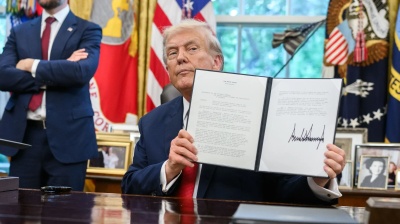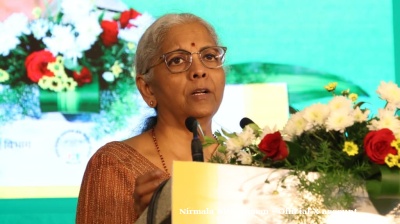Bulgaria’s caretaker Prime Minister Stefan Yanev said on September 15 he expects to head the next interim cabinet that will be appointed by President Rumen Radev on September 16.
Yanev will remain in the PM position until the November general election — the third in Bulgaria this year — after his ministers’ efforts to root out high-level corruption made it the most popular cabinet in decades.
However, he is set to lose three key three key ministers, as they are understood to be planning to start their own political project and run in the next general election.
Caretaker Economy Minister Kiril Petkov has indicated that September 15 is his last day as minister, but declined to confirm directly rumours that he and caretaker Finance Minister Assen Vassilev will start their own political project.
However, political parties widely expect to compete with the two most popular ministers of the current government in the next vote, due to be held on November 14. Radev has already signed the decree dissolving parliament as of September 16.
While reformist Democratic Bulgaria and the Stand up.BG! We Are Coming! Coalition have repeatedly said they would gladly unite with a formation of the two ministers in next parliament, the There Are Such People (ITN) party, which won the July 11 vote, as well as the three traditional parties, are less positive about the plan.
ITN has said that it was too early to comment on a possible cooperation with Petkov and Vassilev. However, such cooperation would be rather surprising as the two ministers previously turned down a proposal by ITN to enter a regular government formed by the party.
The Bulgarian Socialist Party (BSP) went even further, claiming that Petkov and Vassilev are attempting to attract their members in the future formation. The former ruling party Gerb and ethnic-Turk Movement for Rights and Freedoms (DPS) are highly unlikely to welcome such political formation as Petkov and Vassilev were among the most active ministers in the current caretaker government which has revealed numerous cases of abuse of office, corruption and misuse of funds by Gerb’s last government.
On its last working day, Bulgaria’s parliament adopted in its final reading legislation changes on transferring the bureau for witness protection back to the interior ministry. Currently, it is under the jurisdiction of the chief prosecutor. However, government officials say current chief prosecutor Ivan Geshev has used it for his personal protection and also in several highly controversial operations, including the raid on the presidency and arrest of two advisors of President Rumen Radev back in 2020.
Subsequently, the court ruled the arrests were illegal, but at the time they sparked months-long protests demanding the resignations of Geshev and the government led by Gerb’s Boyko Borissov. Protesters accused them of corruption and connections to murky businessmen and politicians.
The changes were backed by ITN, Democratic Bulgaria, ISBG and the BSP. Gerb and DPS voted against them, which was widely expected. Critics of those parties have repeatedly said that Geshev is loyal to the two parties.
During the debates on the changes by a parliamentary committee, pictures were distributed on social media showing Geshev having a friendly chat on his phone with Sevdelina Arnaudova, Borissov’s long-standing an trusted PR. While none of them has denied the chat took place, critics said it proves the connections between Geshev, who should be independent from politicians, and Borissov.
Geshev said he will refer the changes to the constitutional court.
Also on September 15, the parliament voted in first reading on another change in legislation, which would put an end to the specialised court and specialised prosecution. This reform has been demanded by Democratic Bulgaria, which insists the two institutions are used to chase those opposing Gerb and DPS and that their functions can be carried out by the regular courts and prosecution.
The voting had a rather symbolic effect as the changes will not enter into force without being adopted in a second reading. As this parliament’s life has ended, the first vote will not have any legal significance and the next parliament will have to start the debate from scratch.
News

Trump authorises CIA covert operations in Venezuela to topple Maduro
The White House has acknowledged granting the Central Intelligence Agency sweeping powers to conduct covert operations aimed at unseating President Nicolás Maduro, the NYT reported.

India’s finance minister to miss upcoming IMF and World Bank meetings
India’s Finance Minister Nirmala Sitharaman will not attend this week’s annual meetings of the International Monetary Fund and World Bank in Washington, as trade negotiations between New Delhi and Washington remain unresolved.

Young Ukrainians asylum seekers fleeing the war for Germany surges
The number of young Ukrainian fleeing the war and seeking asylum in Germany has surged, following Ukraine’s decision to partially lift its travel ban for men aged 18 to 22, according to figures from the German Interior Ministry.

US may double support for Argentina to $40bn conditional on policy reforms
Washington buys Argentine pesos and mulls creating a new private sector-led $20bn debt facility, which would bring total support to $40bn with the existing swap line, Treasury Secretary Bessent said.




